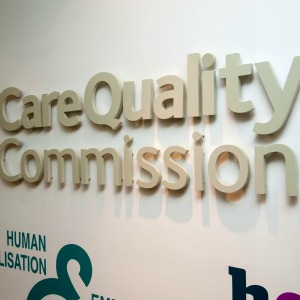CQC could use care.data information for intelligent monitoring

Exclusive The CQC could use anonymised patient data, extracted from GP records through NHS England’s care.data initiative, to enhance its intelligent monitoring and inspection schemes, Pulse understands.
The regulator told Pulse that it ‘hopes’ that NHS England’s plans to expand the potential uses of care.data to include ‘health intelligence’ would enable them to gather more information to be used for its intelligent monitoring scheme.
It has said that there were no confirmed plans in place, but it would have discussions with other parties about potentially using the new data.
GP leaders have warned that this use of care.data information has ‘sinister undertones’
The CQC’s intelligent monitoring service currently uses data from the GP patient survey and QOF scores to give practices a ‘risk rating’ to prioritise potentially ‘risky’ practices for full inspections.
However, it came under heavy criticism from the whole profession for making these risk ratings public, despite being based on weak data, with GPs pointing out that there were problems with the patient survey and that QOF was an optional scheme.
But the CQC has told Pulse that it is looking to expand the data it uses, and care.data could be a way of doing this.
A spokesperson told Pulse: ‘We would hope that in future, any national and anonymised analysis of care.data could provide useful information to enrich our intelligent monitoring of services and feed into our inspection processes.
‘However, there are no confirmed plans for how CQC could use information extracted from care.data to support our regulatory functions. Any changes would involve discussions with our partners, including NHS England, the BMA, and the RCGP.’
The Independent Advisory Group, which oversees care.data, approved plans by NHS England in September to allow care.data information to be used for the purposes of ‘research and health intelligence (which would include public health and regulatory functions)’ during the pilot stage.
A spokesperson for the HSCIC, which is responsible for the IAG, told Pulse that during the pilot stage ‘access is limited to approved analysts within CQC, Public Health England, NHS England and HSCIC’.
Related stories
Is the CQC’s inspection regime fit for purpose?
Dr Robert Morley, chair of the GPC contracts and regulations subcommittee, told Pulse: ‘It’s yet another very worrying development, not just in respect of yet another secondary use for care.data with sinister undertones, but the fact that CQC is seeking to use it as part of their already discredited and unfit for the purpose of its intelligent monitoring process, as well as for rating practices.
The way the CQC has used available data for intelligent monitoring hitherto has been an absolute shambles and with its track record in this area I can’t see anyone being confident that this will now be used appropriately or add anything to the inspection regime
However, we welcomed the CQC’s commitment to discussing the matter with the GPC.
The care.data scheme is intended to link patient information in GP records with hospital data to increase knowledge about local health for commissioning purposes, but has itself has come under criticism after it was halted last year, days before its scheduled national roll out.
Last September, the GP Extraction Service Independent Advisory Group (GPES IAG) – which Pulse recently reported would be abolished from June 2015 – allowed NHS England to allow care.data to be used for regulatory purposes.
A spokesperson for the GMC told Pulse: ‘We don’t currently have any plans to use care.data, however we will continue to look at the wide range of data available to us and how it might help to build a better picture of what is occurring in medical practice.
‘Our priority is to protect patients and we recognise the importance of using and sharing data from a range of sources to help us to do this.’
Pilots in four care.data ‘pathfinder’ areas have begun enlisting GP participation, and Pulse revealed this month that NHS England hopes to notify patients in the majority of areas, about the scheme and their right to opt-out before the general election.
Pulse July survey
Take our July 2025 survey to potentially win £1.000 worth of tokens












